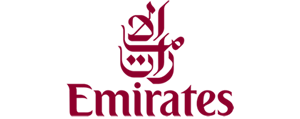 Emirates Expands Premium Economy and Enhanced Cabins Across More Middle East and West Asian Routes
Emirates Expands Premium Economy and Enhanced Cabins Across More Middle East and West Asian Routes
Emirates is set to deliver a significant upgrade to its regional offering, expanding its next-generation Airbus A350 fleet and deploying retrofitted Airbus A380 and Boeing 777 aircraft—all featuring its much-praised Premium Economy cabins—across four key cities in the Middle East and West Asia. This expansion brings a fresh dimension to the Emirates experience for passengers travelling to and from Amman, Mumbai, Muscat, and Bahrain, with the promise of increased comfort, contemporary design, and a consistently high-quality journey, especially for those transiting through Dubai en route to global destinations.
The airline’s commitment to fleet renewal and cabin innovation now sees its latest Premium Economy and Business Class products being rolled out on more scheduled services. Travellers departing from these cities will benefit from Emirates’ signature onboard environment, while also enjoying a seamless, unified product standard when making connecting flights via Dubai. This is a strategic boost for African travel industry professionals, as many clients journey through Emirates’ Dubai hub, and the enhanced offering could help position these routes as preferred options for premium-seeking travellers from sub-Saharan Africa.
Here are the key elements of the new deployment schedule:
From 26 October 2025, Emirates will launch its upgraded four-class A380, complete with refreshed interiors and Premium Economy seating, on the daily EK903/904 service to and from Amman. This move ensures that both daily frequencies on the route will feature Emirates’ latest cabin innovations, providing a uniform, luxurious experience for all passengers. The retrofitted A380s are designed to turn long-haul travel into a memorable event, with their spacious cabins and refined touches.
For Mumbai, the same date marks the introduction of a retrofitted Boeing 777 on EK504/505. With 22 weekly flights to the Indian financial capital now equipped with updated cabins, the new product will cater to the growing demand for premium seating on one of the region’s busiest corridors. This development is particularly relevant for African business and leisure travellers who seek comfort and added value during their transits to India, as Mumbai remains a central hub for trade, medical, and cultural exchanges with Africa.
On 30 October, Emirates will deploy its flagship A350 on all nine weekly flights between Dubai and Muscat, specifically operating the EK862/863 services every Thursday and Saturday. For those connecting through Oman, the A350 brings a quieter, more spacious, and technologically advanced flight experience, reinforcing Emirates’ commitment to serving the Gulf region with world-class equipment. Given Oman’s strategic ties with African markets, particularly in trade and tourism, this move could drive increased premium traffic through Muscat.
Bahrain, a key Gulf destination for both business and leisure, will see an additional retrofitted Boeing 777 introduced on EK833/834 every Thursday starting from 4 December. Once this deployment is complete, Bahrain will be served exclusively by aircraft featuring Emirates’ signature Premium Economy and refreshed Business Class cabins. This exclusivity is poised to elevate Bahrain’s status as a premium gateway, appealing to Africa-based corporates and tourists seeking both comfort and connectivity.
Across its global network, Emirates’ fleet renewal strategy is rapidly transforming its service proposition. The airline is on track to operate more than 635 weekly flights equipped with Premium Economy cabins by the coming winter, covering 68 cities worldwide. Of these, 36 destinations will offer Premium Economy as an all-exclusive product, ensuring customers can rely on a consistently high-end journey from departure to arrival.
For Africa’s travel sector, these developments open new avenues for recommending Emirates as the airline of choice for clients looking to access the Middle East, India, and beyond in superior comfort. The steady growth in Premium Economy demand is a trend mirrored in African travel patterns, with more customers willing to invest in elevated experiences for long-haul journeys. Emirates foresees this demand surging as it plans to offer over 2 million Premium Economy seats by the end of 2025, up from the current 1.8 million across its network. This growth creates a compelling opportunity for Africa-based agencies to engage new customer segments and drive higher-value bookings.
At the heart of these changes is Emirates’ ambitious aircraft retrofit programme, already recognized as one of the largest efforts in aviation history. The airline is refurbishing its fleet at an impressive rate—one aircraft every three weeks—with 67 aircraft already completed as part of a broader plan to retrofit 219 jets, including a near-equal split between 110 A380s and 109 Boeing 777s. Alongside these retrofits, Emirates’ growing fleet of A350s is now serving 15 destinations, steadily increasing the reach of its next-generation product.
This relentless focus on cabin innovation and network expansion is set to shape regional competition, especially as premium travel becomes a key differentiator for airlines targeting the African market. Emirates’ Premium Economy cabins have received widespread acclaim for their generous seat pitch, enhanced dining, and sophisticated aesthetics—features that could redefine expectations for African travellers accustomed to standard economy options. The refreshed Business Class, meanwhile, positions Emirates as a top contender for corporate contracts and high-value leisure business from Africa, especially for those seeking reliable, premium connections beyond the continent.
As travel patterns evolve and the appetite for premium experiences rises, Emirates’ strategy is a signal to the broader industry: the future of air travel in and out of Africa is being shaped by investment in product quality and network consistency. For African travel professionals, staying abreast of these upgrades is no longer optional but essential, as clients increasingly demand more for their money and expect seamless, comfortable journeys across continents.
The race to capture premium traffic is intensifying, and Emirates’ continued investment in its fleet and onboard product underscores its intent to remain at the forefront. For the African market, these developments offer not only new selling points but also the chance to rethink the value proposition offered to clients—today and in the years to come.
